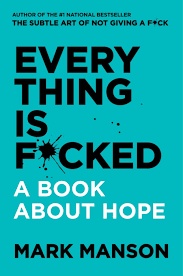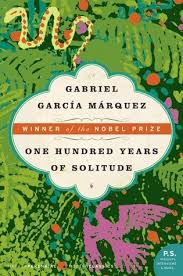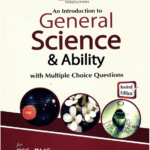Description
Everything Is F*cked: A Book About Hope, continues from the bestseller of Mark Manson, The Subtle Art of Not Giving a Fck*. Even though the book was published in 2019, this volume is indeed more concerned with the deep socio-philosophical issues that concern modern human life. While the title may sound to mislead in terms of projecting a dismal point of view, Everything Is F*cked is more of an investigation into hope, meaning, and contradiction that defines humanity. Including psychology, philosophy, and self-help insights, Manson discusses why most of the people are feeling hopeless despite material wealth and technological advancement.
Key Concepts:
Manson examines the paradox of modern life: people are living at the most comfortable, prosperous moment in human history, but people feel more anxious, discontented, and lost than ever. Everything Is Fcked* explores why and how hope plays a central role in our individual and collective well-being.
Key Ideas:
In this regard, Manson begins by stating what he calls the “Uncomfortable Truth”: that is, death will surely come, and human existence is but a tiny particle in a vast expanse; this realization in itself brings to light much of human endeavor.
Hope as a Psychological Necessity: Manson states that hope stands right at the heart of human existence. He sums it up nicely when he says that hope allows people to continue on even when things are tough. For Manson, hope is that feeling that things may get better in the future than they are at present. He unwinds how people create and sustain hope by means of beliefs, goals, and social structures. When there’s no hope left, what lingers is despair.
The Two Minds: Thinking Brain vs. Feeling Brain: One of the book’s main thrusts is the division between the Thinking Brain (rationally thinking for itself) and the Feeling Brain (feelings). Manson states that, even though we’d like to think it’s our Thinking Brain that’s in control, actually, it is often the Feeling Brain that is in charge of most of our decisions. The Thinking Brain rationalizes and explains exactly why they are doing what their Feeling Brain wants to do. And then there is this tension between logic and emotion, which runs through the book overall.
The Paradox of Progress: Manson explores how unprecedented comfort and convenience-brought by advances in technology and society-created new problems. The more advanced a society is, the more it expects from people, yet it seems to be less satisfied with what has been attained. Manson argues that most men are trapped between falling on a treadmill of endless desire and never having what they want, even when he himself accomplishes his aims.
The Religion of Humanism: Manson views historical philosophy but focuses heavily on the development of Humanism—the belief that human beings are inherently good and that reform is a moral mandate. He attacks this modern faith system, charging it can produce impossible ideals and illusory control. When reality fails to meet the ideals, it results in despair.
Pain, Suffering, and Meaning In this book, Manson continues on the themes he presented in The Subtle Art of Not Giving a Fck*. He elucidates that suffering is inevitable, and humans need to find meaning in their struggles. He claims that not suffering or being challenged leads to a loss of meaning. Struggle gives life purpose; without it, hope disappears.
Formula of Hope: Manson suggests a “Formula of Hope,” consisting of three elements:
A lack of control is replaced with some sense of control. People want to believe they can influence their environment.
Some sense of value: People must believe in something greater than themselves.
Community or some sense of belonging: A group of people with similar values and beliefs can fortify hope.
Nietzsche and the Will to Power: Manson derived from the philosophy of Friedrich Nietzsche, specifically his “will to power” theory. In fact, according to him, humans were not simply to gratify their needs for pleasure or meaning. Instead, Nietzsche maintained that humans were innately driven by a need to exert control and power over their affairs. The desire for power is ultimately prone to strife, but it must exist in order to generate hope.
The Blue Dot Effect: Manson demonstrates a psychological phenomenon he calls the “Blue Dot Effect,” whereby people perceive an increase in problems as they experience fewer actual problems. In other words, the more significant the problems that people solve, the lesser the problems of greater significance begin to appear as “big problems.” This concept speaks to the paradox of progress where higher comfort breeds greater dissatisfaction.
Hope and Despair. The core of the book is the manner in which hope works in human existence and what occurs when hope has been lost. Manson claims that if in fact hope must be earned through meaningful struggle, then the purpose of life is that struggle.
The Limits of Progress. The book attacks the idea that material progress, comfort, is the answer to all human ills. Such progress oftentimes spawns greater discontent.
The Role of Pain: Once again, like the book he authored earlier, Manson states that pain and suffering are part of life; people need to learn how to find meaning in them rather than abhor them at all costs.
Philosophical Consideration: As he discusses different philosophical stories, such as Nietzsche and Immanuel Kant, Manson delves into the questions concerning the deeper ones, more about existence, purpose, and morality.
Outline
The book is sectioned, addressing different dimensions of hope and hopelessness mixed with personal anecdotes, philosophy, and psychology, from which Manson deducts and makes his points. Rather like in his first book, he engages readers with humor and irreverence to present very heavy topics.
Significance:
Everything Is Fcked* struck a chord in readers through the blunt approach toward modern existential concerns. In this case, it negates all counter-narratives conventional self-help dangles at one’s disposal, promising quick fixes. It examines in honest and sometimes critical terms the human condition and encourages its readers to accept life’s inherent challenge rather than searching for perpetual happiness.
With humor, psychological insight, and philosophical reflection by Manson, the book is not only thought-provoking but accessible, too. It is written to a generation seeking their place amidst complexities in modern life, in which the evolution and comfort seem to exempt them from being able to find a sense of purpose in this life.










Reviews
There are no reviews yet.